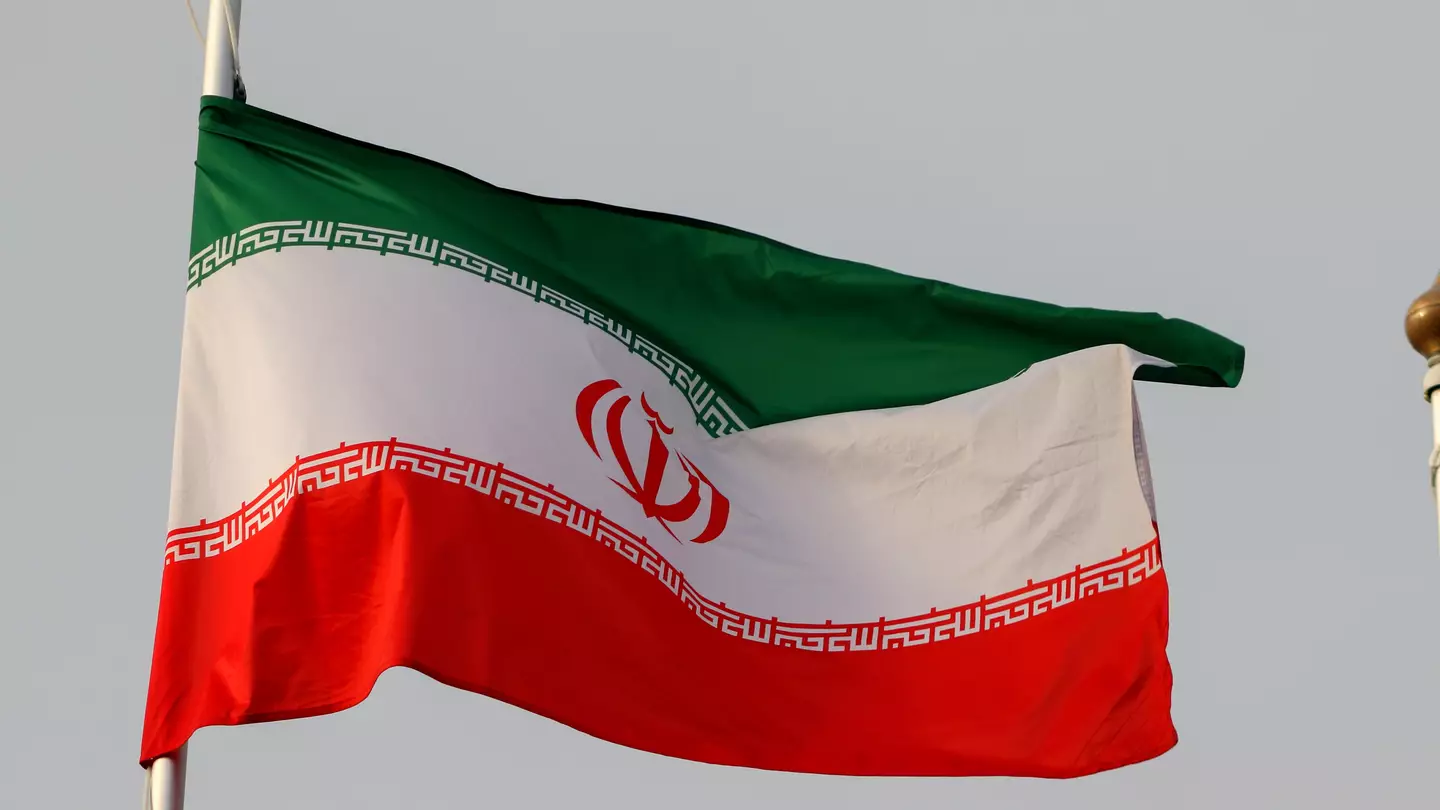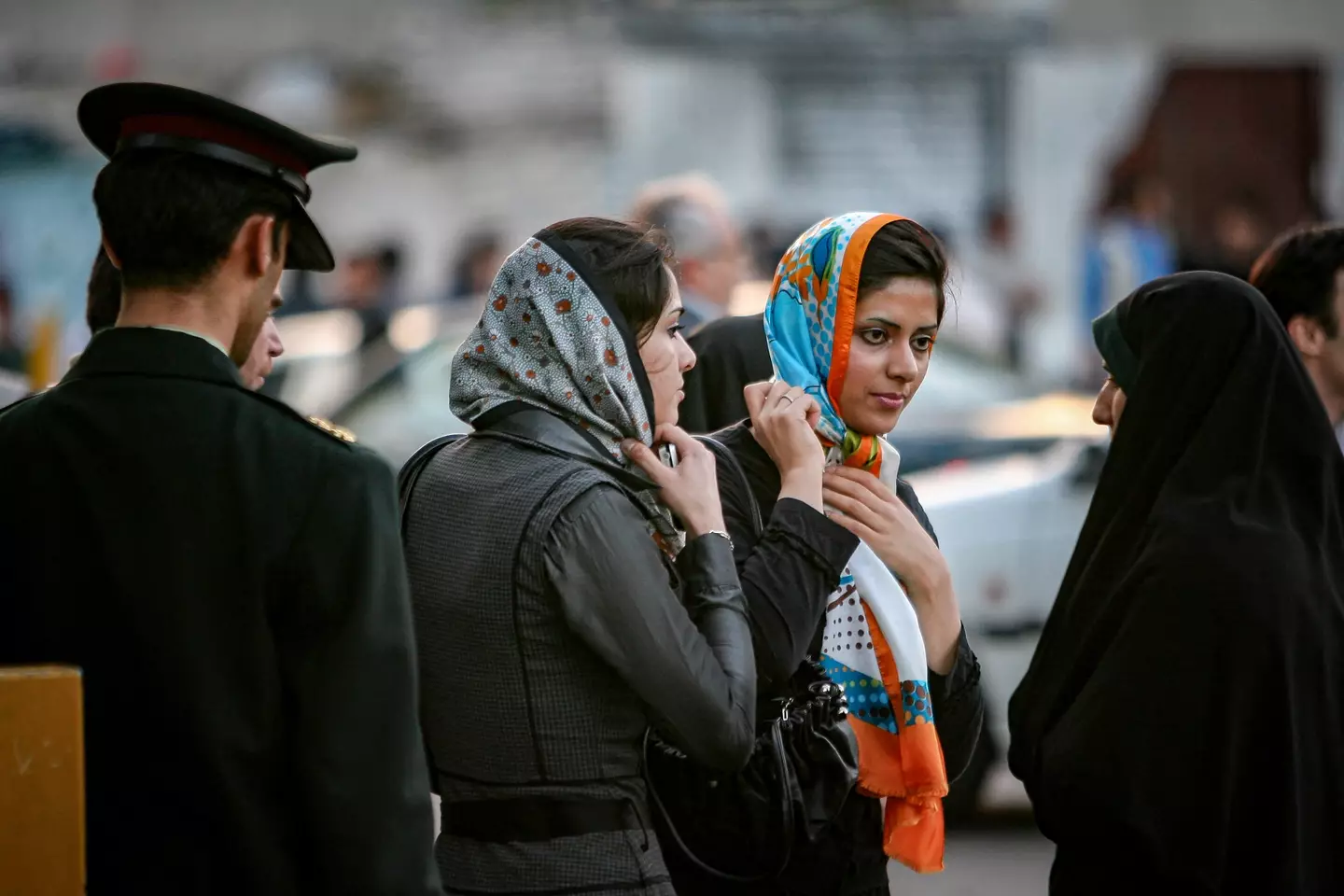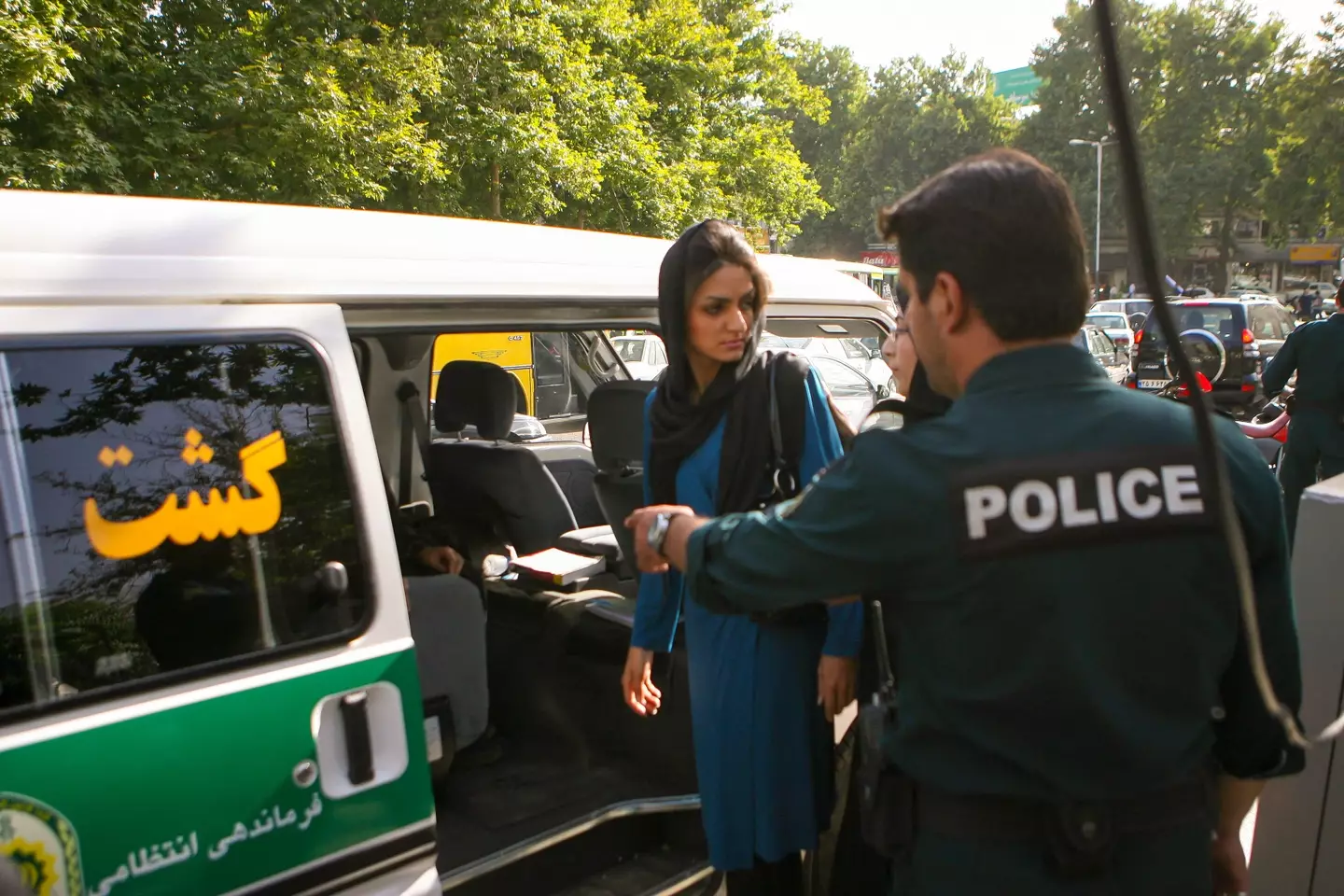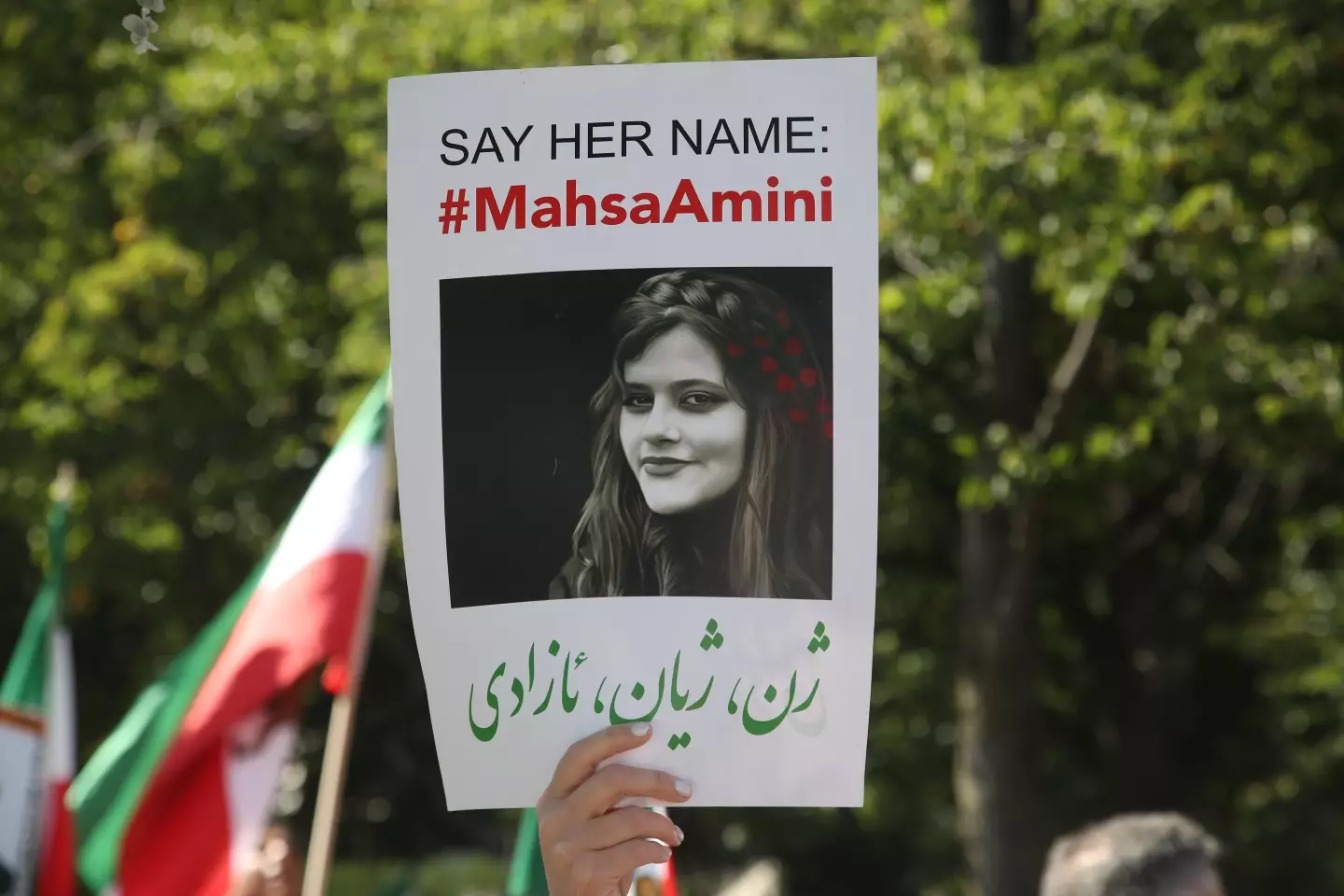
Amid its ongoing war against Israel, following the alleged break of a ceasefire agreement proposed by Donald Trump, many aspects of Iran's political, cultural, and societal normals have been called into question.
Among one of the many questions raised since the Middle Eastern crisis hit headlines following a sudden initial missile attack from Israel earlier this month, is why the Iranian government employ 'morality police' - or the 'Gasht-e Ershad', as it's officially known.
While not directly related to the country's government or military, this law enforcement body is responsible for policing female members of society, specifically with regards to their clothing.
In 2005, the Gasht-e Ershad was put into place to make sure Iranian women were dressing modestly with a hijab when out in public, as well as to assure that chaste behaviour (a concept known locally as ʿifāf) was being maintained, as per Sharia Law.
Advert

Legal enforcement of these expectations was instilled following the country's 1979 revolution, which saw a new Islamic republic asserting its ideology and principles in public - a number of which affected women directly.
Though vigilante groups were initially tasked with protecting the aims of said revolution, it took until some time later for a system that upholds the regime's moral code to be enforced.
As we say, however, under the rule of President Mahmoud Ahmadinejad in 2005, the specialised patrol known as the Gasht-e Ershad was fully installed within the Law Enforcement Command of the Islamic Republic of Iran.
While officially tasked with monitoring the behaviour of Iranian men and women, the force is specifically occupied with women's dress.
As well as the name for an item of clothing, the maintenance of 'proper' Iranian dress is a practice known as 'hijāb', which requires that women's hair is covered with a veil at all times in public, and that their bodies are always obscured by loose-fitting attires.
In recent years, however, the police force has reportedly been used as a means of social control, particularly during periods of political instability.

An example of this occurred in 2022, when then-President Ebrahim Raisi ordered the Gasht-e Ershad to quash a number of protests - a demand that backfired when a young woman died in custody under the care of the force.
Jina Mahsa Amini had been arrested for exhibiting an appearance deemed 'not Islamic enough' whilst out with her brother, who was told she would be transferred to the morality police headquarters for an 'educational and orientation class'.
Two hours later, her family were informed she'd been taken to hospital. A number of women who'd been inside the Gasht-e Ershad headquarters at the time later told press however, 'they killed someone in there'.
Amini's death sparked mass backlash at the time, especially after the country's Police Information Center claimed that the woman had suffered a cardiac seizure in custody.
The subsequent protests saw the force temporarily removed from the streets of Iran, before being returned in 2023, along with the assistance of face-recondition technology, reportedly in a bid to avoid public confrontations from unfolding (as per Human Rights Watch).

According to Le Monde, however, since Amini's death, some women in Iran have refused to cover their hair in protest to the strict order, many of whom continued to be harassed by Gasht-e Ershad squad members.
Dissatisfied with this resurgence of a more liberal means of dressing, Iran's Supreme Leader Ali Khamenei launched a new police operation last year titled the 'Light Plan' in the hope of encouraging women who are not properly veiled to dress more modesty.
According to one Iranian woman, however, who was 'kicked' recently during her arrest for not wearing a veil in public, the 'Light Plan' is a guise for another means of controlling women all over again.
She told Le Monde that the 'new' morality police were still rounding up women, attacking them, before placing them into the back of a van for crimes such as having 'torn pants', 'no hijab' and a 'coat not long enough'.
The unnamed woman added that the officer that kicked her to the ground during her arrest had told her: "I did the right thing [hitting you]. You're all prostitutes. If it were up to me, I'd kill you all."
Topics: Iran, World News, News, Politics